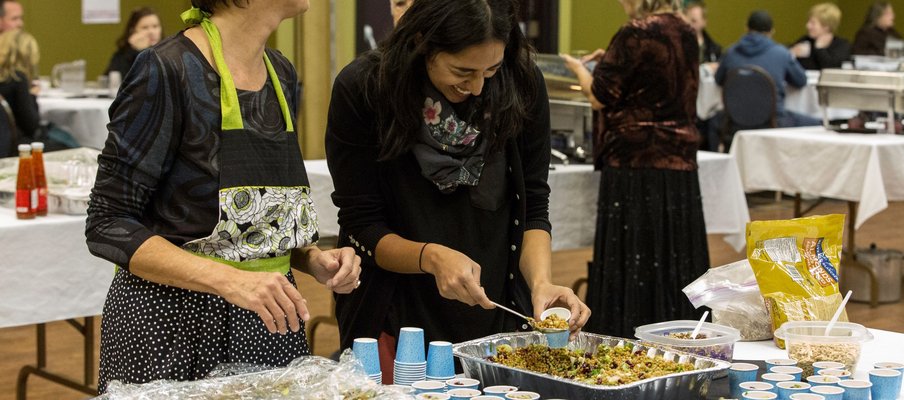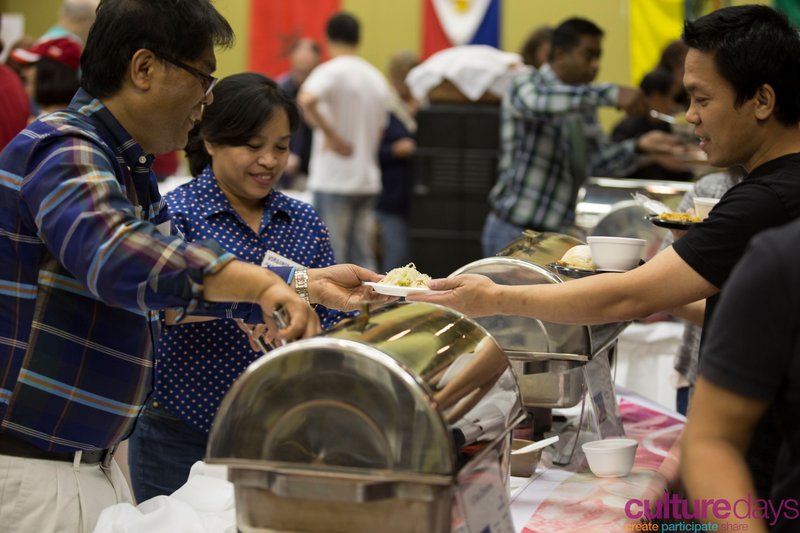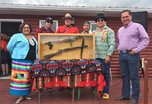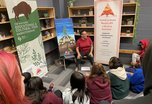Getting a Taste of Culture

Increasingly, it’s becoming more important for museums to branch out from displaying artifacts in history and culture. Many museums, by using food to trigger oral history, draw from its experiences, and discover what it mean for the community.
“Everyone eats and we all share that culture,” says Emma Morris, community engagement coordinator, Museums Association of Saskatchewan. “In preparing and sharing food with each other, a fantastic non-threatening and accessible way to learn about each other is created. As a result, it breathes a more diverse life into many aspects of our communities.”
Food is one of the most powerful and accessible mediums for sharing and experiencing culture, and it has yet to be used to its fullest potential in many communities. As intangible cultural heritage, it is still a largely missed opportunity for museums to achieve a more engaged community and meaningful visitor experience.
“Hosting an evening of global flavours and inviting people from your community to a potluck where we can talk about our traditions and heritage between existing cultures in the community without cultural ownership in the community.”
“All of the communities in Saskatchewan have the capacity to use food as a cultural meeting point,” continues Morris, “and some of them are already using it this way. The disconnect, though, is that they often don’t realize the power of what they are doing. Engaging with intangible cultural heritage and recognizing the community’s stories is becoming more and more important within the museum world.”
Most museums already have items associated with food, such as stoves, churners, or agricultural equipment. Morris suggests museums start with holding demonstrations with these items or organizing a cultural event and inviting groups from the community who do not often engage with the museum. “Hosting an evening of global flavours and inviting people from your community to a potluck where you can demonstrate and discuss some of the ways settlers survived when they first arrived, share your own food, taste others, share recipes, listen to music, and have good conversations can bridge a gap between history and now for European settlers, Indigenous people, non-European settlers, and new Canadians. We can talk about our traditions and heritage between existing cultures in the community without cultural ownership in the community.”

While there are museums in Saskatchewan where food is part of the heritage interpretation and visitor experience through fall suppers and annual events, Morris explains that there could still be more recognition of these kinds of activities as realistic and valuable initiatives.
“This is a great time to get excited about these kinds of activities and validate them as tools for brining communities and museums together,” says Morris, “Food is the medium we use most often to express and perform our own cultural identities; whether that’s through every day cooking and eating, familial variations on cultural traditions, passing down recipes, or with reference to holidays and special occasions. With this expression comes the music, dance, prayers, conversation, and the like that really defines a person’s culture. If we were to tap into this link between food and cultural identity, there may be a lot more understanding and a lot less fear of each other in our communities.”
The Museums Association of Saskatchewan held workshops this fall on Intangible Cultural Heritage in cooperation with Heritage Saskatchewan. The Museums Association of Saskatchewan receives funding from the Saskatchewan Lotteries Trust Fund for Sport, Culture, and Recreation.






